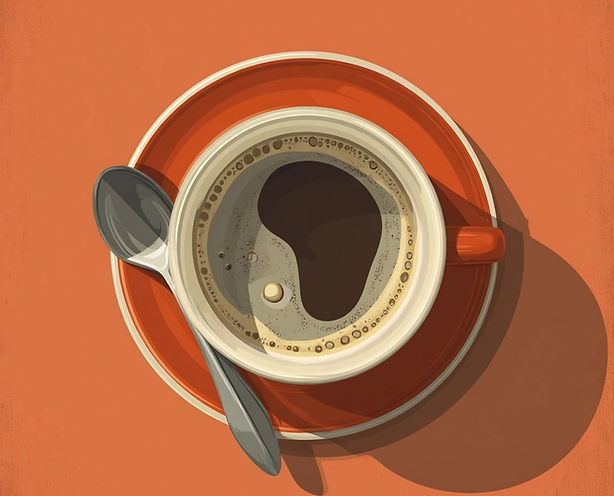
Caffeine is the world’s most widely consumed psychoactive substance. It’s found in coffee, tea, soft drinks, energy drinks—and for many people, it's a daily ritual to feel more awake and focused. But a new study highlights that for individuals with depression, caffeine and depression may not mix well in high doses.
Researchers from the University of Queensland examined over 11,000 adults with a history of depression to better understand how caffeine affects mood, sleep, and stress levels. The results, published in Complex Psychiatry, show that high caffeine intake—six or more caffeinated drinks per day��—is linked to increased psychological distress in this group.
Genetics, stress, and sensitivity to caffeine
The study didn’t stop at behavior. About 9,000 participants also provided DNA samples, allowing researchers to look at genetic variants related to caffeine metabolism and sensitivity. Some people have genes that cause them to process caffeine more quickly, prompting them to drink more. Others are more sensitive and may reduce their intake to avoid side effects like insomnia or jitteriness.
Interestingly, people who said caffeine interfered with their sleep tended to consume less, suggesting a natural self-regulation. But even among those who weren’t sleep-sensitive, drinking six or more caffeinated beverages daily was associated with more stress, according to the Kessler Psychological Distress Scale—a tool that measures anxiety and depressive symptoms.
What does this mean for people with depression?
High caffeine and depression symptoms may go hand in hand
People with depression often experience low energy, brain fog, and fatigue—making caffeine an appealing pick-me-up. However, this study suggests that too much caffeine might backfire, increasing stress without improving sleep. For each additional caffeinated drink per day, distress levels rose slightly but significantly.
It’s important to note that moderate caffeine intake (about 3–5 drinks per day) did not appear to increase distress. The link was strongest in those with high consumption, showing a threshold effect rather than a direct linear relationship.
Can reducing caffeine help?
This study doesn’t prove that caffeine causes distress—but it raises a flag for clinicians, patients, and caregivers. In people already dealing with depression, cutting back on high caffeine intake may be a small but meaningful step toward better mental health.
While caffeine’s effects vary from person to person, this research emphasizes the importance of personalized care. Understanding how your body—and your genes—respond to caffeine could be an important part of managing depression.
Conclusion
Caffeine is not inherently harmful, but in high doses, especially in individuals with depression, it might add to psychological stress. These findings encourage more awareness around caffeine habits, particularly in mental health settings. For those experiencing distress, it might be worth rethinking that extra cup of coffee or energy drink.
Discover more at interventionalpsychiatry.org
Citations:
McIntosh, H. A., et al. (2025). Caffeine Consumption, Psychological Distress, and Insomnia in a Cohort of Individuals with Depression. Complex Psychiatry. https://doi.org/10.1159/000539146
Lara, D. R. (2010). Caffeine, mental health, and psychiatric disorders. Journal of Alzheimer’s Disease, 20(s1), S239–S248. https://doi.org/10.3233/JAD-2010-1379
Read more topics from the Interventional Psychiatry News & Subscribe to our Newsletter
Editorial Disclaimer:
This article was produced using a combination of editorial tools, including AI, as part of our content development process. All content is reviewed by human editors before publication.


